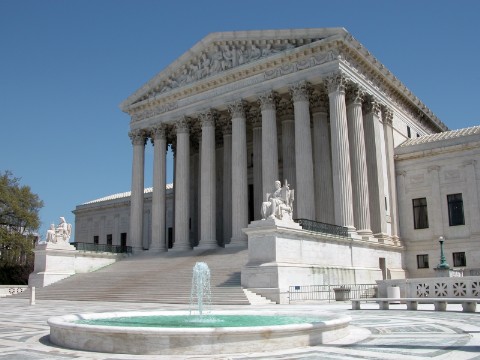By Amanda McKinzie, a 2012 Judge K.K. Legett Fellow at the Washington Legal Foundation and a student at Texas Tech School of Law.
Forcing defendants to settle securities fraud class actions regardless of the claims’ merits will likely be the consequence of the U.S. Court of Appeals for the Ninth Circuit’s decision in Amgen, Inc. v. Connecticut Retirement Plans & Trust Funds. Not only did the decision lower the standard for invoking the fraud-on-the-market presumption, but it also barred defendants during the certification phase from providing evidence negating materiality to rebut the presumption. Two other circuits, the Third and Seventh, have rendered similar opinions, whereas decisions from the First, Second, and Fifth Circuits were contrarily decided. The Supreme Court has been asked to grant review in this case to resolve this circuit split. The Court is expected to announce its decision on Amgen’s request on Monday, June 11.
In Amgen, investors filed a securities fraud class action arguing that Amgen Inc., a biotechnology company, misled the public regarding the safety of certain products. Plaintiffs claimed that Amgen had caused inflation of stock prices that later fell when disclosures were made. The Ninth Circuit affirmed the decision of the United States District Court for the Central District of California, holding that plaintiffs need only allege, not prove, the materiality of misrepresentations to invoke the fraud-on-the-market presumption in a securities fraud case. This powerful presumption removes the requirement that each plaintiff prove he relied on the alleged misrepresentation, allowing reliance to be presumed. Although this is a rebuttable presumption, the court eliminated the defendants’ ability to present such evidence in the certification stage. In other words, once the plaintiffs allege the misrepresentation were material, the presumption is invoked without recourse until after certification. Why is this significant? Because once they are certified, a large majority of securities class actions settle.
Because of the negative repercussions of the Ninth Circuit’s decision and because the decision is inconsistent with precedent, the Supreme Court should grant certiorari. The Court developed the fraud-on-the-market presumption in Basic, Inc. v. Levinson, and in the opinion, the Court continually discussed “materiality” in conjunction with the “misrepresentations.” Furthermore, in footnote 27 of Basic, the Court specifically references materiality without disregarding it. Therefore, the Ninth Circuit’s decision to ignore this requirement contradicts the Supreme Court’s precedent.
One commentator has argued that for the Court to be consistent with its decision in Erica P. John Fund v. Halliburton that plaintiffs were not required to prove loss causation, an element of the claim, it will likely agree with the Ninth Circuit that materiality is an element of the claim that does not require proof at the certification stage. In light of the Court’s recent decision, however, in Wal-Mart Stores, Inc. v. Dukes, holding that courts should examine the merits of the elements of the claim in determining certification issues, the Court will likely approve of the analysis of materiality, especially given its decision in Basic.
The defendants’ petition for certiorari has been filed, and the Washington Legal Foundation has also submitted a brief in support of the petitioners. In order to address this circuit split and to protect the defendants from being forced to settle a claim without a legitimate basis, the Court should grant certiorari.

